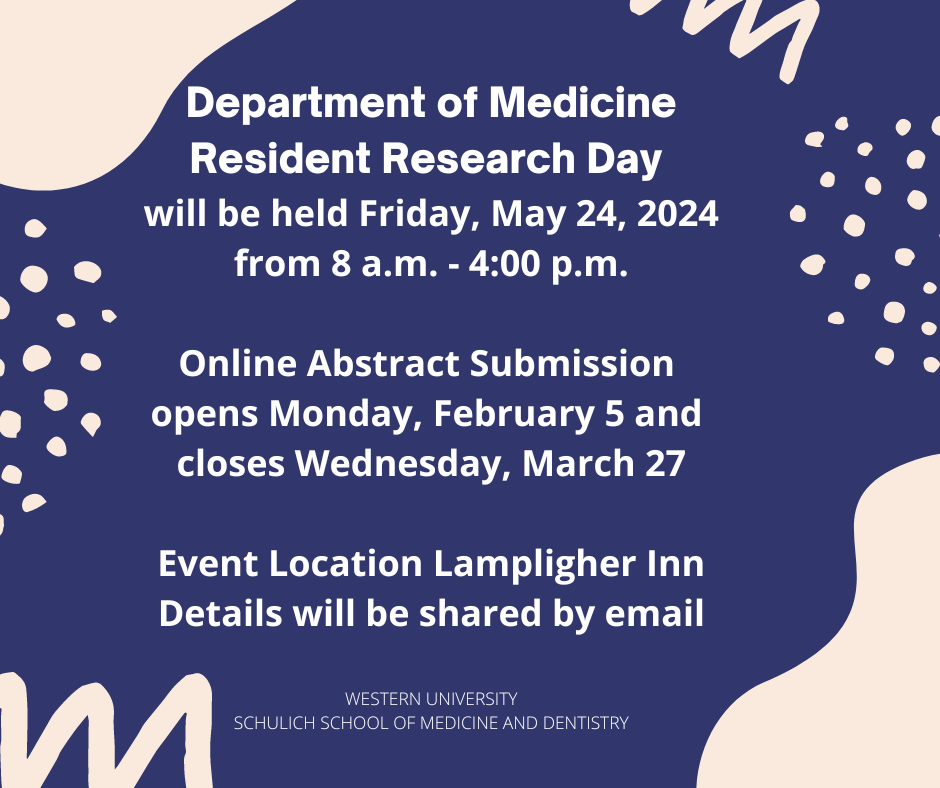A B C D E F G H I J K L M N O P Q R S T U V W X Y Z |
| Nephrology |
 AMIT GARG, MD, FRCPC, FACP, MEd, PhD, Professor AMIT GARG, MD, FRCPC, FACP, MEd, PhD, Professor Dr. Amit Garg is Professor of Medicine - Division of Nephrology and of Epidemiology and Biostatistics at Western University. He is the Associate Dean of Clinical Research for the Schulich School of Medicine and Dentistry and is Lead of the ICES Provincial Program focused on Kidney, Dialysis and Transplantation Research (ICES KDT). He is a Scientist at the Lawson Health Research Institute and at ICES, and an Associate Scientist at the Population Health Research Institute. He is the past medical director of the living kidney donor program at the London Health Sciences Centre, a past president of the Canadian Society of Nephrology, the past Director of the Institute for Clinical Evaluative Sciences (ICES) Western Facility, and the past Medical Lead, Access to Kidney Transplantation for the Ontario Renal Network. Characterized by his peers as a world-class clinical and health services investigator in kidney, dialysis and transplantation medicine, Dr. Garg feels most fortunate to be able to contribute in this way and is grateful to be supported and surrounded by so many brilliant people, both in the workplace and at home. Working in teams, he has over 600 published articles with more than 1,000 different authors from over 50 international centres (h-index 112). The research has appeared in top medical journals and in the lay press including CTV, Global News, and the New York Times. It has been widely acknowledged for helping understand how different treatments alter the risk of acute kidney injury from elective surgery, improving the practice and safety of living kidney donation, and reducing adverse events from prescription medications. Additionally, the research has made it easier for fellow researchers and clinicians to systematically search for relevant kidney-related content in large bibliographic databases thanks to the development of specialized filters, and to conduct large-scale randomized trials using streamlined methods. Dr. Garg has mentored and trained future researchers. He has been the primary research supervisor to over 75 trainees at Western University from who he has learned a great deal. He is also grateful to work with a team of highly qualified research administrators, coordinators, data managers, epidemiologists and statisticians in London, Ontario. In 2021 Dr. Garg was awarded the Hellmuth Prize, Western University's highest distinction for sustained excellence in research, and the Kidney Foundation of Canada Medal for Research Excellence. In 2016 he received the Donald W. Seldin Young Investigator Award from the American Society of Nephrology, which is presented annually to one individual with an outstanding record of achievement and creativity in basic or patient-orientated research related to the functions and diseases of the kidney. Keywords: Clinical trials Dialysis Epidemiology Health Informatics Health Services Research Healthcare Databases Kidney diseases Medical education Meta-analysis Observational studies using administrative databases Systematic reviews Transplantation |
| Cardiology |
 PALLAV GARG, MD, MBBS, MSc, FRACP, Associate Professor PALLAV GARG, MD, MBBS, MSc, FRACP, Associate ProfessorDr. Pallav Garg is an Assistant Professor of Medicine at Western University and a staff Interventional Cardiologist at London Health Sciences Center. He received his medical degree at the University of Melbourne and completed his postgraduate internal medicine and cardiology training in Melbourne and Sydney, Australia. He undertook his subspecialty cardiology training at Harvard Medical School including interventional cardiology at Brigham and Women’s Hospital followed by peripheral vascular intervention at Massachusetts General Hospital in Boston. In addition to this he spent 2 years as a clinical research fellow in the Cardiovascular Division at Brigham and Women’s Hospital, Harvard Medical School and Harvard Clinical Research Institute. Dr. Garg holds a Master's degree in Epidemiology from Harvard University School of Public Health, focusing on clinical epidemiology, biostatistics, decision analyses and clinical trial design. His research area of interest is in the evaluation of efficacy and safety of novel drugs and percutaneous device therapies in interventional cardiology. Keywords: Administrative databases Angioplasty Stents Clinical Research Clinical trials Coronary Artery Disease Drug-Eluting Stents Epidemiology Health Outcomes Research Healthcare Databases Observational studies Percutaneous Coronary Intervention Restenosis Systematic reviews |
| Respirology |
 Sean Gill, PhD, Assistant Professor Sean Gill, PhD, Assistant ProfessorDr. Gill is an Assistant Professor in the Departments of Medicine and Physiology & Pharmacology at Western University, as well as a New Scientist with the Lawson Health Research Institute in the Critical Illness Research Program. He received his PhD in Physiology from Western in 2006 and completed postdoctoral training at the University of Washington in Seattle, Washington. He joined the faculty at the University of Washington in the Division of Pulmonary and Critical Care Medicine as an Acting Instructor in 2010 before returning to Western in 2012. Research in Dr. Gill’s laboratory is currently focused on the resolution of inflammation and repair following lung injury. Lung injury, which leads to acute respiratory distress syndrome (ARDS), is characterized by profound inflammation, edema, and tissue injury often resulting from trauma or severe pulmonary infection. Although ARDS survival rates have improved in recent years, 25 to 40% of cases remain fatal, and of those patients that do survive, persistent inflammation and fibrosis can result in continued pulmonary complications. Current projects in Dr. Gill’s lab include assessing the role of metalloproteinases and their endogenous inhibitors, the tissue inhibitors of metalloproteinases (TIMPs) in regulating three different aspects of recovery following lung injury: 1) microvascular endothelial cell dysfunction; 2) macrophage polarization and apoptosis; and, 3) initiation and resolution of fibrosis. Additional projects include examining the role of caspases and cell death in microvascular endothelial cell dysfunction during septic lung injury, and determining the effects of aging and exercise on the pathophysiology of lung injury. Dr. Gill’s lab uses multiple murine models of direct lung injury, including bleomycin (a model often used to study chronic lung injury and fibrosis) and Pseudomonas aeruginosa infection, as well as cecal ligation and perforation, a murine model of sepsis that results in indirect lung injury. Techniques such as flow cytometry, immunohistochemistry, quantitative real-time polymerase chain reaction, western blotting, and enzyme activity assays are then used to examine how specific cell populations are affected during lung injury. Keywords: Apoptosis Endothelial cell dysfunction Fibrosis Innate immunity Lung injury MMPs Mouse models Resolution of inflammation TIMPs |
| Hematology |
 ALAN GOB, MSc, MD, FRCPC, Assistant Professor ALAN GOB, MSc, MD, FRCPC, Assistant ProfessorDr. Gob’s clinical interest is in benign and consultative hematology; his academic interest is in Quality Improvement. He is a member of several quality committees including LHSC’s Quality and Patient Safety Committee and is involved in several organizational quality improvement projects. He designs and delivers the content for the Department of Medicine’s postgraduate Quality Improvement Curriculum. |
| General Internal Medicine |
 MARK GOLDSZMIDT, MDCM, FRCPC, MHPE, PhD Professor MARK GOLDSZMIDT, MDCM, FRCPC, MHPE, PhD ProfessorDr Mark Goldszmidt is a Professor of Medicine and General Internist in the Department of Medicine, division of Internal Medicine and a Research Scientist at the Centre for Education Research and Innovation (CERI) at Schulich School of Medicine and Dentistry. He is also a member of the Centre for Quality, Innovation and Safety (CQuInS). Dr Goldszmidt has a master’s in health Professions Education from the University of Illinois at Chicago and a PhD from the School of Health Professions Education at Maastricht University, the Netherlands. As a researcher he has considerable experience in supervision and mentorship as well as expertise in qualitative methodologies. His program of research largely takes place in clinical practice settings where he explores practice variability, communication and collaboration and the often-competing tensions of education and clinical care. Example studies from his program of research can be found on his google scholars page at: Google Scholar. Three good examples of studies done with trainees are: 1) Chirag B, Sarah B, Tricia M, Saad C, Mark G. What trainees grapple with: a study of threshold concepts on the medicine ward. Medical Education.0(0). 2) Cadieux DC, Goldszmidt M. It's not just what you know: junior trainees' approach to follow-up and documentation. Med Educ. 2017;51(8):812-825. 3) Juma S, Goldszmidt M. What physicians reason about during admission case review. Adv Health Sci Educ Theory Pract. 2016:1-21. Keywords: Clinical documentation Clinical reasoning Electronic documentation Interprofessional collaboration Medical Education Practice variability Qualitative methods Quality improvement Team communication |
| Clinical Pharmacology |
 STEVEN GRYN, MD, FRCPC, Associate Professor STEVEN GRYN, MD, FRCPC, Associate ProfessorDr. Gryn graduated from the University of Western Ontario medical school in 2009. He remained at Western for his Internal Medicine training, including a term as Chief Medical Resident, and subsequently completed his Clinical Pharmacology & Toxicology subspecialty residency here as well. His primary clinical and research interests focus on adverse drug reactions and optimal therapeutics, particularly relating to the prevention of vascular disease and stroke. Keywords: Adverse drug reactions Anticoagulation Drug-drug interactions Dyslipidemia Hypertension Personalized Medicine |
| Cardiology |
 LORNE GULA, MD, FRCPC, MSc, Associate Professor LORNE GULA, MD, FRCPC, MSc, Associate Professor Dr. Gula is a Cardiologist specializing in arrhythmia management at University of Western Ontario. He completed medical school at University of Ottawa in 1997, with subspecialty training in Cardiology in London, Ontario and Arrhythmia Fellowship at Brigham and Women’s Hospital in Boston. He has been on staff since 2005 and specializes in clinical management of heart rhythm disturbances with special interest in catheter ablation and device implantation. Research interests include management of atrial and ventricular arrhythmias and prevention of sudden death. He has been involved with authorship of 131 peer-reviewed published manuscripts. Dr. Gula completed a Master of Science in Epidemiology degree at Harvard University in 2005 and is a Heart and Stroke Foundation researcher. Keywords: Ablation Arrhythmia Atrial and ventricular arrhythmias, Management Atrial fibrillation Cardiac conduction and arrhythmias Cardiology ICD Pacemaker Sudden death, prevention Supraventricular tachycardia Ventricular tachycardia |
| Nephrology |
 LAKSHMAN GUNARATNAM, MD, FRCPC, Associate Professor LAKSHMAN GUNARATNAM, MD, FRCPC, Associate Professor Dr. Gunaratnam is a nephrologist and Associate Professor of Medicine at Western University. He currently holds the Dr. Robert Zhang Chair in Translational Transplant Research at Western and is Medical Director of Multi-Organ Transplant Program at the London Health Sciences Center. Dr. Gunaratnam completed his undergraduate and graduate studies at the University of Toronto in immunology and then went on to attend medical school and complete residency training in internal medicine at the University of Ottawa. Dr. Gunaratnam completed research fellowships at the University of Ottawa (Dr. Stephen Lee) and Harvard Medical School (Dr. Joseph V. Bonventre) in cancer biology and acute kidney injury, respectively. After completing his clinical fellowship in nephrology at the Massachusetts General Hospital and Brigham and Women’s Hospital in 2009, he did additional training in renal transplantation with Dr. Anil Chandraker at Brigham and Women’s Hospital. He was promoted to Instructor in Medicine at Harvard Medical School and later served as an associate physician at Brigham and Women’s Hospital prior to moving to London, Ontario. Dr. Gunaratnam leads a basic and translational research program focused on the biological mechanisms underlying acute kidney injury, prolonging the lifespan of kidney transplants, and novel treatments for kidney cancer. His research program is supported by peer-reviewed funding from several agencies including the Canadian Institutes for Health Research, the Kidney Foundation of Canada, the Natural Sciences and Engineering Research Council of Canada, the Government of Ontario, and the Canadian Foundation for Innovation. He holds several advisory and leadership positions in Canadian medical organizations, including, Canadian Blood Services, Trillium Gift of Life Network, Canadian Society of Transplantation, and the Ontario Medical Association. Keywords: Acute kidney injury Cell death Cell signalling G proteins Inflammation Ischemia-reperfusion injury Kidney Injury Molecule-1 Phagocytosis Protein tyrosine phosphorylation |


